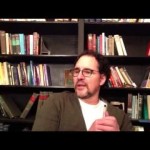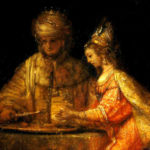We run our website the way we wished the whole internet worked: we provide high quality original content with no ads. We are funded solely by your direct support. Please consider supporting this project.
How do you respond to Ezekiel 26:1–21?
There are a number of specific prophecies against various cities in the Old Testament which were fulfilled (though some were not, see Jer. 18:6–10). The Lord’s prophecy against Tyre is one of the most impressive. The Lord says Nebuchadnezzar will ravage the seaport (vs. 7–11) and tear down all the buildings and throw the rubble into the sea (vs. 12–13, 19). Tyre will ultimately be made into “a bare rock, and…will become a place to spread fishnets.” It “will never be rebuilt” (vs. 4) and will, in fact, never again be found (vs. 21).
Not everything spoken of in this verse was fulfilled in the siege of Nebuchadnezzar. It was ultimately fulfilled by Alexander the Great more than two hundred years later. He pushed what little was left of Tyre after Nebuchadnezzar’s devastating siege into the sea as a means of building a land bridge to the island off the coast of the old city. Since he did not have a naval fleet, Alexander needed a way to reach and conquer the inhabitants of this small island where the old seaport used to thrive. The location now is indeed “a bare rock” with only a few small fishing villages to boast of. And you can guess where they spread their nets to dry!
Amazing prophecies like this demonstrate that Yahweh is the one true God and help prove that the Bible is his inspired Word. They exalt God’s sovereign control over world history and his unfathomable wisdom in using the plans of people to accomplish his own objectives. But we undermine the full magnitude of this divine wisdom if we reduce such prophecies to “crystal ball” previews of the future. A God who can creatively weave the free decisions of people as a means of carrying out his providential plan is greater than a God who needs to have everything settled ahead of time to carry out his plan.
In my estimation, as Alexander the Great was planning his campaign in this region, the sovereign Lord of creation was seizing this opportunity to fulfill the prophecy against Tyre he had given two centuries earlier. How much or how little supernatural intervention it may have taken for the Lord to ensure that Alexander the Great would fulfill these prophecies is uncertain. But if he had to influence him at all, there is no reason to think that he had to do it against the vicious character this king had already freely acquired. God is so shrewd he can use the wickedness of people’s hearts to accomplish his own ends (Gen. 50:20).
Of course, had the king and the people of Tyre repented of their sin, it might have been that none of this prophecy would have come to pass (see Jer. 18:7–10). If so, this prophecy against Tyre would have been understood along the same lines as the Lord’s canceled prophecies against other cities and nations who repented. The conditions would have been met to change God’s mind about Tyre’s decreed destruction.
Category: Q&A
Tags: Open Theism, Q&A
Topics: Open Theism, Responding to Objections
Verse: Ezekiel 26
Related Reading

The Rorschach Test
The choices we make will either increase or decrease our ability to recognize light when we see it. As we choose goodness, we increase our capacity for goodness. What do you see when you read the Bible or look at God or interact with others? Everything is a Rorschach test to some extent, revealing the light…

Lord Willing? Part 1
Greg sat down with Jessica Kelley recently to talk with her about her book Lord Willing?. We’re posting their conversation in three parts. Today, in part 1, Jessica shares the story of when her son Henry was diagnosed with an aggressive brain tumor at age 4. You can find part 2 of the interview here, and part…

Response to the September 11th attacks
Was God Punishing Us? Since the attacks on the World Trade Center and the Pentagon on September 11th, many people have asked the question, “Why did God allow this to happen?” In response, some Christian leaders have suggested that God was punishing our country for reaching an all-time low in moral behavior. As one well-known…

Doesn’t Psalm 139:16 refute the open view of the future?
One of the passages most frequently cited in attempts to refute the open view of the future is Psalm 139:16. Here David says that God viewed him while he was being formed in the womb (vs. 15) and then adds: “[Y]our eyes saw my unformed body. All the days ordained for me were written in…

What is the significance of Esther 4:14?
The wise Mordecai encourages Esther to bravely risk her life by pleading the case of the Jews before King Xerxes, saying, “…if you remain silent at this time, relief and deliverance for the Jews will arise from another place, but you and your father’s family will perish. And who knows but that you have come…

Neo-Molinism and the Infinite Intelligence of God
Classical Molinism holds that, since God is omniscient and knows all truths, he knows not only what every agent will do in the future, but also what every agent would have done in every other “possible world.” In this essay I argue that classical Molinism overlooked a whole category of truths that an omniscient God…
